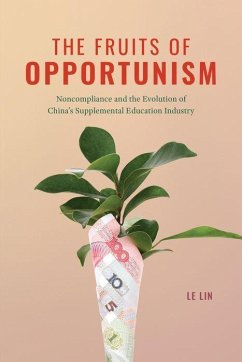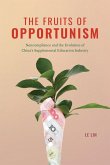"Like many parents in the US, parents in China, increasingly concerned with their children's academic performance, are turning to for-profit businesses to help their children get ahead in school. China's educational testing industry (ETI) is now the world's largest and most vibrant for-profit education market, with almost one-tenth of China's enormous population attending ETI classes every year. We see the results in the US higher education system, as more than 70% of Chinese students studying in American universities have taken test-preparation classes for overseas standardized tests, such as the Test of English as a Foreign Language (TOEFL) and the Graduate Record Examination (GRE). In addition to telling an interesting educational story, sociologist Le Lin also tells a fascinating organizational one. A former insider at a Chinese ETI business, Lin shows how and why the Chinese educational testing industry evolved to become a for-profit industry dominated by private, formal, nationally operating, and globally financed corporations, despite restrictions the Chinese state placed on the industry. In addition to unpacking the industry-level evolution, he also probes the transformation at the organizational level: why do some organizations thrive while others fail during the transition to market capitalism? Lin answers these questions by looking closely at the opportunistic organizations that were founded by marginal entrepreneurs. He found that the more opportunistic practices, even those that did not always follow the law, thrived in this initially ambiguous industry. The marginal and opportunistic operators in the ETI implemented aggressive firing and hiring policies that kept a wide range of instructors available and even innovated new teaching practices that led to better student performance. The organizations that broke the rules were the ones that most often won the day. Ultimately, Lin shows that state policies against opportunistic practices unintentionally facilitated the domination of opportunists. As opportunists became rule-makers and diffused their practices across the industry, they pushed privatization and marketization from below. The case of Chinese ETI terrifically illustrates how opportunism is often destructive, but it can also be productive to the formation and function of a market"--








